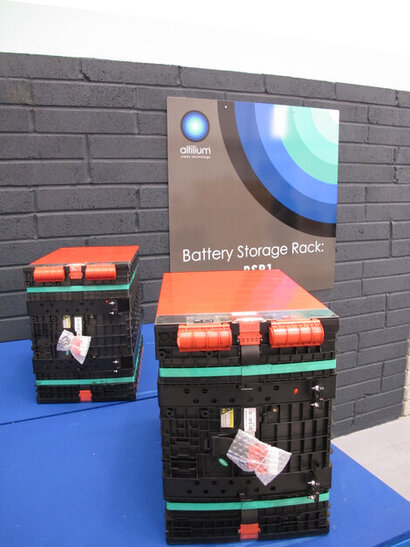
Altilium is utilising its EcoCathode technology, which can recover over 97 percent of the lithium and 99 percent of the graphite from LFP batteries, strengthening the business model for recycling them but also enabling OEMs to meet new regulatory targets and sustainability goals.
As LFP battery technology gains momentum in the UK’s EV and ESS markets, Altilium’s recycling operations will play a pivotal role in ensuring that these new technologies are both sustainable and resource efficient.
Currently, most EVs use nickel cobalt manganese (NMC) batteries, but the rise of LFP presents new opportunities for recycling and resource conservation.
According to the Advanced Propulsion Centre, LFP batteries are set to grow from 18 percent of the UK EV market in 2027 to 25 percent in 2035. This shift to LFP batteries presents a challenge for battery recyclers, as the iron and phosphate are less valuable than nickel and cobalt. As a result, LFP batteries are currently less likely to be recycled.
Altilium is addressing this challenge by recovering more of the lithium, which is a high-value material, as well as recycling the graphite, which be reused in the production of new anodes.
“The rise of LFP batteries presents both challenges and opportunities for recyclers” said Dr Christian Marston, Altilium COO. “At Altilium, we are pioneering solutions to ensure these batteries are not only recovered, but play a key role in a UK circular battery economy. Our advanced EcoCathode technology allows us to efficiently extract lithium and graphite, making LFP recycling commercially viable and environmentally essential. By expanding our capabilities to process LFP alongside NMC batteries, we are strengthening the UK’s battery supply chain and supporting the transition to a cleaner, more sustainable transport sector.”
Altilium is already recycling NMC batteries from two leading UK-based automotive OEMs, as well as Gigafactory production scrap, to produce modern high-nickel cathode active materials (CAM) at its ACT1 and ACT2 facilities in Devon.
The company’s recently opened ACT2 recycling plant in Plymouth has capacity to recover lithium and other battery metals from 300kg of black mass waste (the equivalent of one EV battery) per day, while its planned Teesside hub will be one of the largest EV battery recycling facilities in Europe. The plant will have the capacity to process scrap from over 150,000 EVs per year and has been designed to handle a mixed feed of battery chemistries, including LFP.
This latest innovation positions Altilium at the forefront of developing sustainable solutions for next generation battery technologies, while also strengthening the UK's leadership position in the transition to EVs and a cleaner transport.
For additional information:

